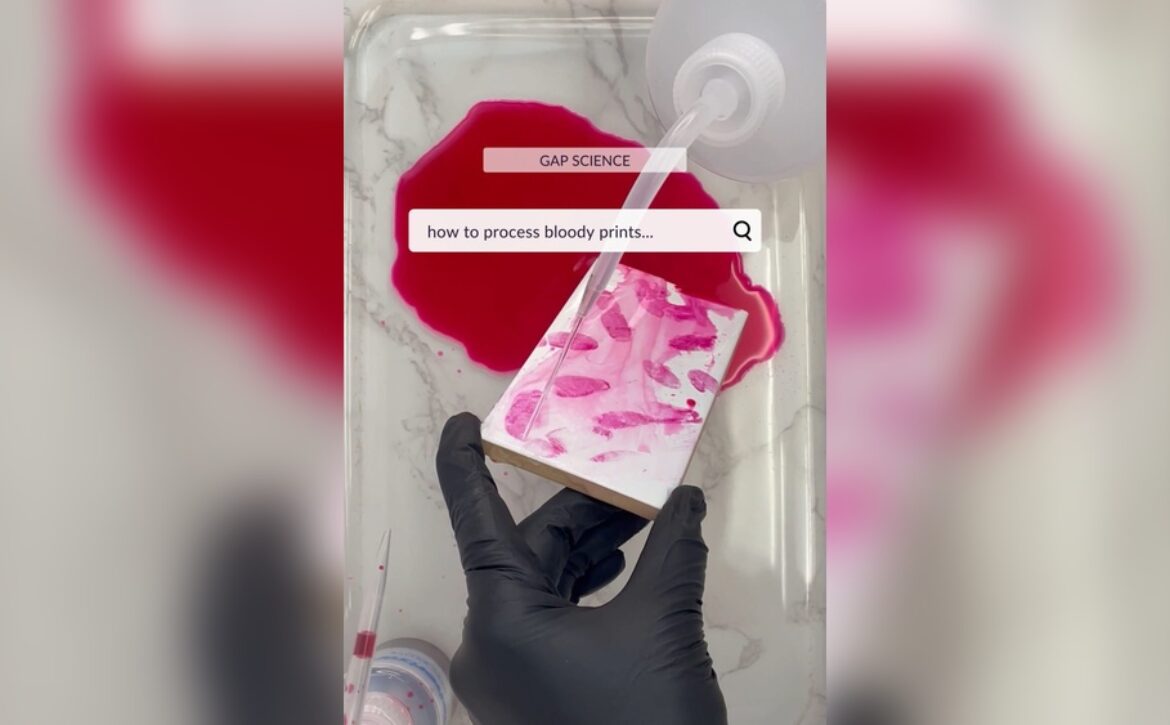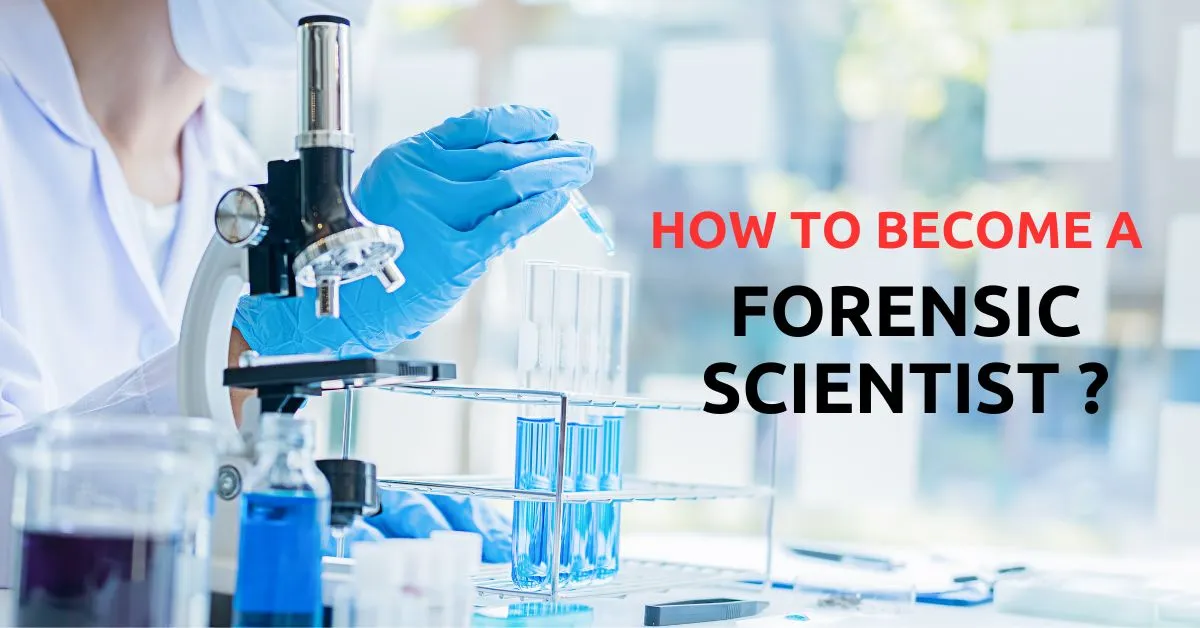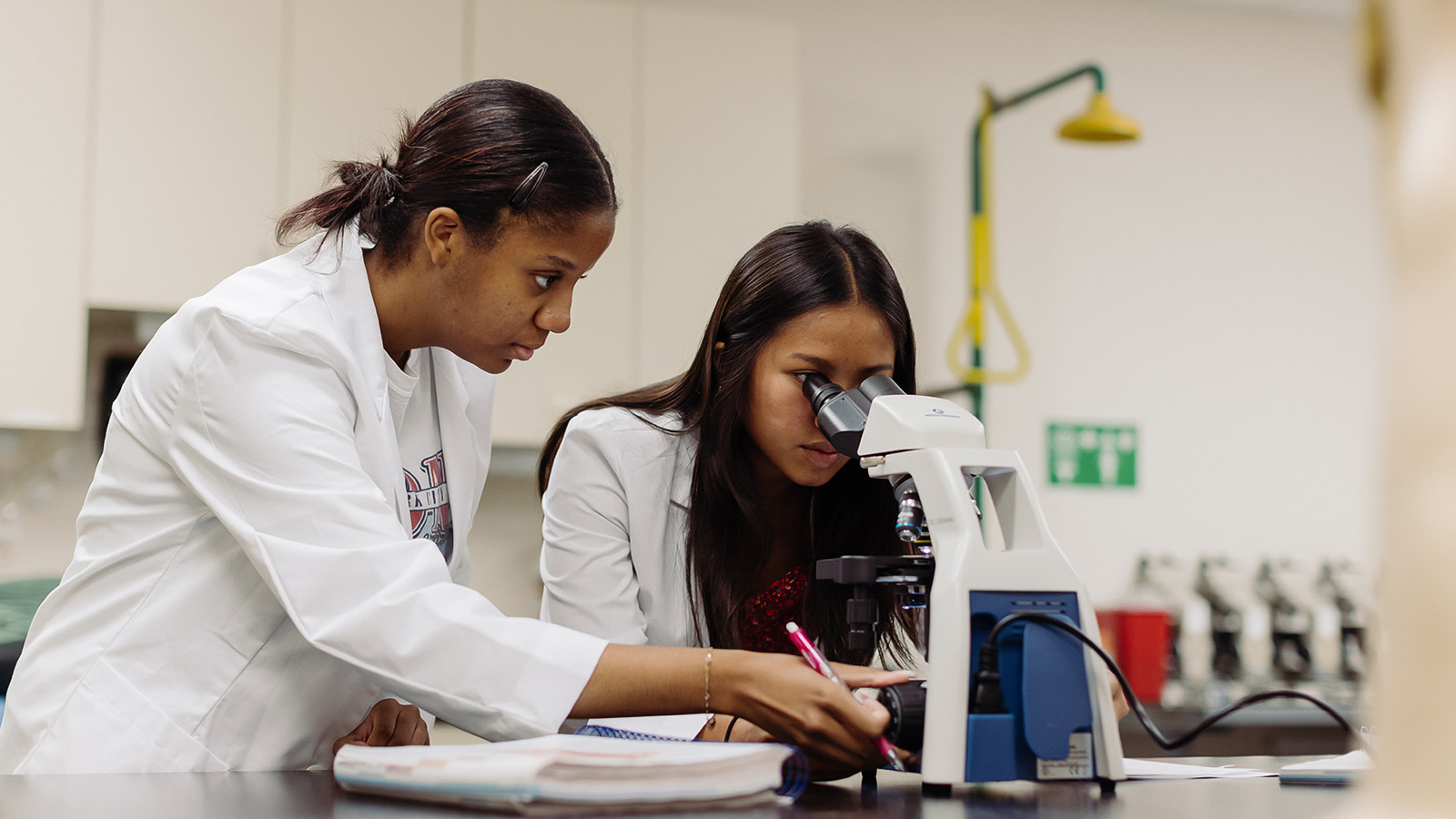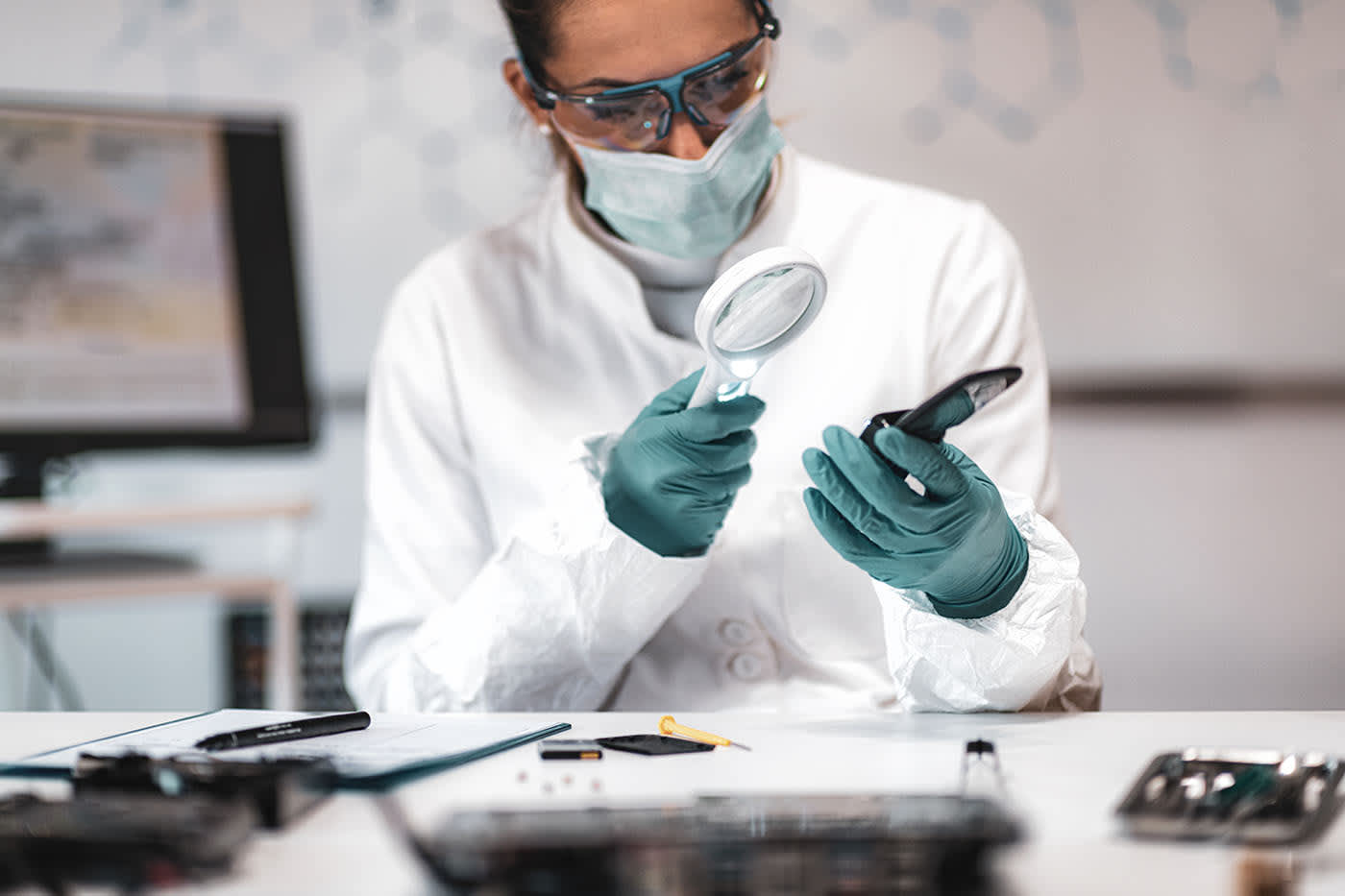
How to Become a Forensic Science Expert: A Step-by-Step Guide
Imagine stepping into a world where science meets the thrill of solving mysteries. That’s the realm of forensic science, a field that combines meticulous investigation with cutting-edge technology to uncover the truth.
If you’ve ever been captivated by crime dramas or dreamt of playing a crucial role in solving real-life cases, you’re in the right place. This guide will walk you through the steps to turn that fascination into a fulfilling career.
You’ll learn what it takes to become a forensic scientist, the skills you need, and the educational pathways available. Ready to unlock the secrets of evidence and make a difference in the world? Let’s dive in and explore how you can start your journey in forensic science.
Choosing The Right Educational Path
Choosing the right educational path is crucial if you want to pursue a career in forensic science. The journey can be as thrilling as the career itself, with numerous opportunities to tailor your education to fit your aspirations. But how do you navigate this complex landscape to ensure you’re heading in the right direction?
Degree Options
Start by considering the degree options available to you. A bachelor’s degree in forensic science is a strong foundation, offering courses that cover essential topics such as crime scene investigation and laboratory analysis. If you prefer a more generalized approach, degrees in biology, chemistry, or criminal justice can also pave the way.
Think about what excites you. Do you enjoy the intricacies of chemical reactions, or are you drawn to the legal aspects of crime-solving? This decision will impact your entire career. Reflect on your interests and strengths to choose a degree that aligns with your passion.
Specialized Courses
Once you’ve decided on a degree, explore specialized courses that can enhance your skills. Courses in toxicology, digital forensics, or DNA analysis can offer deeper insights into specific areas. These courses help you stand out and become an expert in niche fields.
Consider adding hands-on training to your curriculum. Participating in lab work or internships can provide practical experience that textbooks can’t. Imagine the thrill of applying what you’ve learned in real-world scenarios—it’s a vital step toward becoming a skilled forensic scientist.
Have you ever thought about where you want to specialize? The options are vast, and your choices can lead to exciting career paths. By carefully selecting your courses, you can tailor your expertise to fit the evolving demands of forensic science.

Gaining Practical Experience
To become a forensic scientist, gain practical experience through internships in crime labs or law enforcement agencies. Hands-on training helps understand techniques like DNA analysis and fingerprinting. Volunteering at forensic departments also enhances skills and knowledge.
Gaining practical experience is a crucial step in your journey to becoming a forensic scientist. It’s one thing to learn theories in a classroom, but applying them in real-world scenarios is what truly sharpens your skills. This hands-on experience not only boosts your confidence but also makes you a more attractive candidate to future employers.
Internships
Internships offer a golden opportunity to immerse yourself in the world of forensic science. Many crime labs and law enforcement agencies offer internships where you can observe and assist professionals. This exposure to real cases provides insights into daily operations, helping you understand the nuances of forensic work. Seek internships that align with your interests, whether it’s DNA analysis, toxicology, or digital forensics. Speak to your professors or career advisors about available opportunities. Don’t shy away from asking questions during your internship. Engaging with experts can provide you with invaluable knowledge and networking opportunities that could open doors in your career.
Volunteer Opportunities
Volunteering can be an excellent way to gain experience if internships are hard to come by. Look for volunteer roles in local law enforcement or community organizations that deal with forensic-related activities. Participating in community outreach programs can also enhance your understanding of forensic science’s role in society. Such experiences might involve educating the public about crime scene preservation or assisting in mock crime scene events. Consider joining forensic science clubs or societies. They often organize events and workshops that offer practical experience and a chance to meet like-minded individuals who share your passion. Remember, every bit of experience counts. Whether you’re interning, volunteering, or participating in clubs, each experience contributes to your growth as a forensic scientist. So, what’s your next step towards gaining practical experience in forensic science?
Developing Essential Skills
Becoming a forensic scientist is more than just understanding science and law. It’s about honing essential skills that allow you to solve complex puzzles. These skills are crucial as they enable you to analyze evidence and draw conclusions that impact real lives. Let’s dive into two key skills you need to develop: analytical skills and attention to detail.
Analytical Skills
Analytical skills are the backbone of forensic science. They help you break down complex information and understand its components. Imagine you’re faced with a crime scene filled with seemingly unrelated pieces of evidence. Your analytical skills allow you to identify patterns and connect the dots. Start by practicing critical thinking exercises. These can be as simple as solving puzzles or analyzing news articles for underlying stories.
Consider taking courses in statistics or data analysis. These subjects teach you how to interpret data effectively. If numbers aren’t your forte, try engaging in group discussions that challenge your perspectives. Asking questions like “Why did this happen?” or “What are the possible outcomes?” can sharpen your analytical thinking.
Attention To Detail
Attention to detail is the difference between a solved case and a cold one. Missing a tiny clue can lead to incomplete conclusions. Cultivate this skill by focusing on the minutiae in everyday tasks. Whether it’s proofreading a document or organizing your workspace, the small things matter.
Train yourself to observe your surroundings meticulously. Practice exercises that require close observation, like identifying discrepancies in photos or spotting differences in patterns. As you develop this skill, you’ll find it becomes second nature to notice details others might overlook.
Think about it: how would you feel if you could spot the crucial piece of evidence that everyone else missed? Developing attention to detail not only boosts your forensic capabilities but also enhances your overall observational skills. Remember, the devil is in the details, and so is the solution.
Certifications And Licenses
Becoming a forensic scientist involves more than just academic qualifications. Certifications and licenses play a crucial role in building credibility. They demonstrate your expertise and commitment to the field. Understanding these requirements is essential to advance your career in forensic science.
Professional Certifications
Professional certifications validate your skills and knowledge in forensic science. These credentials are offered by recognized bodies. The American Board of Criminalistics offers certifications for specialized fields. Certifications show employers you meet industry standards. They can also lead to better job opportunities. Keep your certifications updated to stay competitive.
State Licensing Requirements
State licensing requirements vary across different regions. Some states require forensic scientists to hold specific licenses. These licenses ensure that you comply with local regulations. Check with your state’s professional boards for exact requirements. Licensing may involve passing exams or meeting educational criteria. Staying informed about these requirements is vital for your career.
Building A Professional Network
Connecting with experienced forensic scientists offers valuable insights into the field. Attend conferences and workshops to meet professionals. Engage on online platforms to share knowledge and build relationships.
Building a professional network is essential for anyone looking to succeed in forensic science. It opens doors to opportunities, collaborations, and insights that you might not find on your own. Whether you’re just starting out or looking to advance your career, connecting with others can make all the difference.
Joining Associations
Joining professional associations is a great way to connect with experts in the field. Look for organizations like the American Academy of Forensic Sciences or the International Association for Identification. These groups often provide resources, job listings, and events that can help you grow your career. Membership can also offer you access to exclusive forums and discussion groups. This is where you can ask questions, share experiences, and learn from seasoned professionals. Consider it a backstage pass to the world of forensic science.
Attending Conferences
Conferences are more than just lectures; they are a goldmine for networking. Attending events like the annual Forensic Science Conference can help you meet industry leaders and peers face-to-face. You never know when a casual conversation might lead to your next job offer or research collaboration. While you’re there, don’t just stick to the sessions. Spend time in the networking lounges and exhibit halls. You might find yourself discussing the latest forensic technology over coffee with someone who shares your passion. What are your strategies for building a professional network in forensic science? How have these connections helped you in your career? Share your thoughts in the comments below!

Staying Updated With Industry Trends
To thrive in the ever-evolving field of forensic science, staying updated with industry trends is crucial. The landscape of forensic science is constantly shifting with new technologies, research findings, and methodologies. Being proactive in learning and adapting can make a significant difference in your career growth and effectiveness in the field.
Continuing Education
Continuing education is a key strategy for staying on top of industry trends. Many professional organizations offer workshops, seminars, and online courses tailored for forensic scientists. Enrolling in these programs can help you acquire new skills and stay informed about advancements in the field.
Additionally, attending conferences can be incredibly beneficial. Conferences not only offer educational sessions but also provide networking opportunities with experts who can share insights from their experiences. Have you considered how much you can learn from a casual conversation with a leading forensic expert?
Research Publications
Keeping up with research publications is another effective way to stay updated. Subscribing to forensic science journals can provide you with the latest research findings and trends. You can often access these publications online, making it convenient to integrate this habit into your routine.
Engaging with research papers can also inspire new ideas and methods in your work. Have you ever thought about how a small insight from a journal article could transform your approach to a case? Reading widely can ignite creativity and enhance your problem-solving skills.
Remember, staying updated is not just about passively consuming information. It’s about actively engaging with the material and thinking about how it applies to your work. Are you ready to take the next step in your forensic science career by staying ahead of the curve?
Advancing Your Career
Advancing your career in forensic science offers unique opportunities. Whether you are a fresh graduate or a seasoned professional, expanding your skills can lead to exciting roles. Your journey in this field can be dynamic and rewarding. Understanding the pathways to growth is essential for success.
Career Opportunities
Forensic science offers diverse career paths. You can work in crime labs, police departments, or federal agencies. Each setting provides unique experiences and challenges. Specializations include DNA analysis, toxicology, and digital forensics. These fields are constantly evolving. Staying updated with the latest techniques can boost your career.
Education is key in this field. Advanced degrees open doors to specialized roles. Consider pursuing a master’s or Ph.D. in forensic science. Certifications also enhance your resume. They demonstrate expertise and commitment. Employers value candidates with recognized credentials.
Leadership Roles
Leadership roles in forensic science are attainable. Experience and knowledge pave the way. Aim for positions like lab manager or department head. These roles involve overseeing operations and teams. Strong leadership skills are crucial. Communication, problem-solving, and decision-making are important traits.
Mentorship can help you grow. Learn from established leaders in your field. Networking is equally vital. Attend conferences and workshops. Engage with peers and experts. Building relationships can lead to career advancements. Leadership roles require dedication and continuous learning.

Frequently Asked Questions
What Qualifications Are Needed For Forensic Science?
To become a forensic scientist, you typically need a bachelor’s degree in forensic science or a related field. Courses in biology, chemistry, and criminal justice are essential. Some positions may require a master’s degree or specific certifications. Hands-on experience through internships or lab work is highly beneficial for career advancement.
How Long Does It Take To Become A Forensic Scientist?
Becoming a forensic scientist usually takes around four to six years. This includes obtaining a bachelor’s degree, which typically takes four years. Additional training or a master’s degree may add one to two years. Gaining practical experience through internships or entry-level positions can also affect the timeline.
What Skills Are Essential For Forensic Scientists?
Key skills for forensic scientists include analytical thinking, attention to detail, and strong problem-solving abilities. Effective communication and teamwork are crucial, as forensic scientists often collaborate with law enforcement. Technical skills in laboratory equipment and software are also important for analyzing evidence accurately.
What Is The Role Of Forensic Scientists In Investigations?
Forensic scientists analyze physical evidence from crime scenes to assist in criminal investigations. They use scientific methods to identify substances, such as drugs or explosives, and match DNA samples. Their findings help law enforcement solve cases and support legal proceedings by providing expert testimony in court.
Conclusion
Embarking on a forensic science career is both exciting and rewarding. It requires dedication and a passion for solving mysteries. Start with the right education and gain practical experience. Each step brings you closer to becoming a forensic expert. Remember, patience and perseverance are key.
Keep learning and stay updated with new technologies and techniques. This field offers endless opportunities for those who are curious and committed. Follow your passion, and you can make a real difference. Consider the impact your work can have on justice and society.
Embrace the journey and make every moment count.





